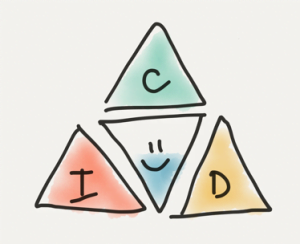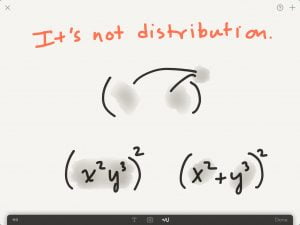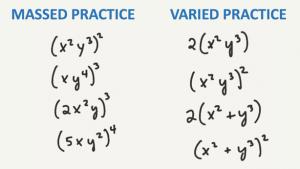In the 2016 AMATYC keynote, I covered three main themes:
- Interaction & Impasse
- Challenge & Curiosity
- Durable Learning (this post)
Here are references and resources for Durable Learning:
What is durable learning? The learning design practices that make learning “stick” over the long-term. These include (but are not limited to) spaced repetition, knowledge retrieval, interleaving, and varied practice.
A really good book on the subject of durable learning is “Make It Stick” by Brown, Roediger, and McDaniel.
We also took a dive into some cognitive science and again, there is a fantastic, easy-to-read book I recommend “Cognitive Development and Learning in Instructional Contexts” by James Brynes.
We explored the idea of a schema – a mental representation of what all instances of something have in common (plural is schemata). In particular, schemata help you to categorize your experiences, they help you remember what you are experiencing, they help you to comprehend what you are experiencing, and are important in developing the ability to problem solve.
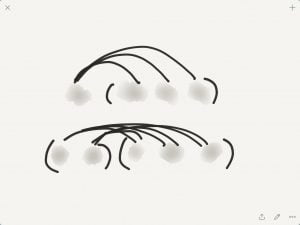
When confronted with a new situation, learners try to run a schema they already have. This leads to all sorts of interesting misconceptions.
By engaging the learner in varied practice, we hope to modify the existing schema.
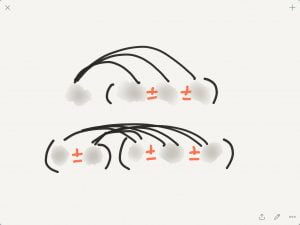
To help the learners refine schema, we can abandon massed practice for varied practice. In massed practice, the learner does nothing but activate the exact same schema over and over. In varied practice, the learner has to distinguish between different schemata in order to successfully complete the practice.
There is a lengthier talk I gave on cognitive science in the context of algebra called “Algebra is Weightlifting for the Brain” (not the world’s best recording, but you’ll hear more about the ideas of Information Processing Theory and see plenty of math examples).
We didn’t quite get to interleaving in the talk, but we will cover that during the teaching challenge.
What is the Teaching Challenge?
For the next year, I will send you a teaching challenge every week to help us, together, change the way students learn and engage. The challenge will be delivered each week by email and will include:
- Something to learn or ponder
- Best practices shared by participants in previous challenges
- A new challenge
Sign up for the teaching challenge here. All are welcome.
